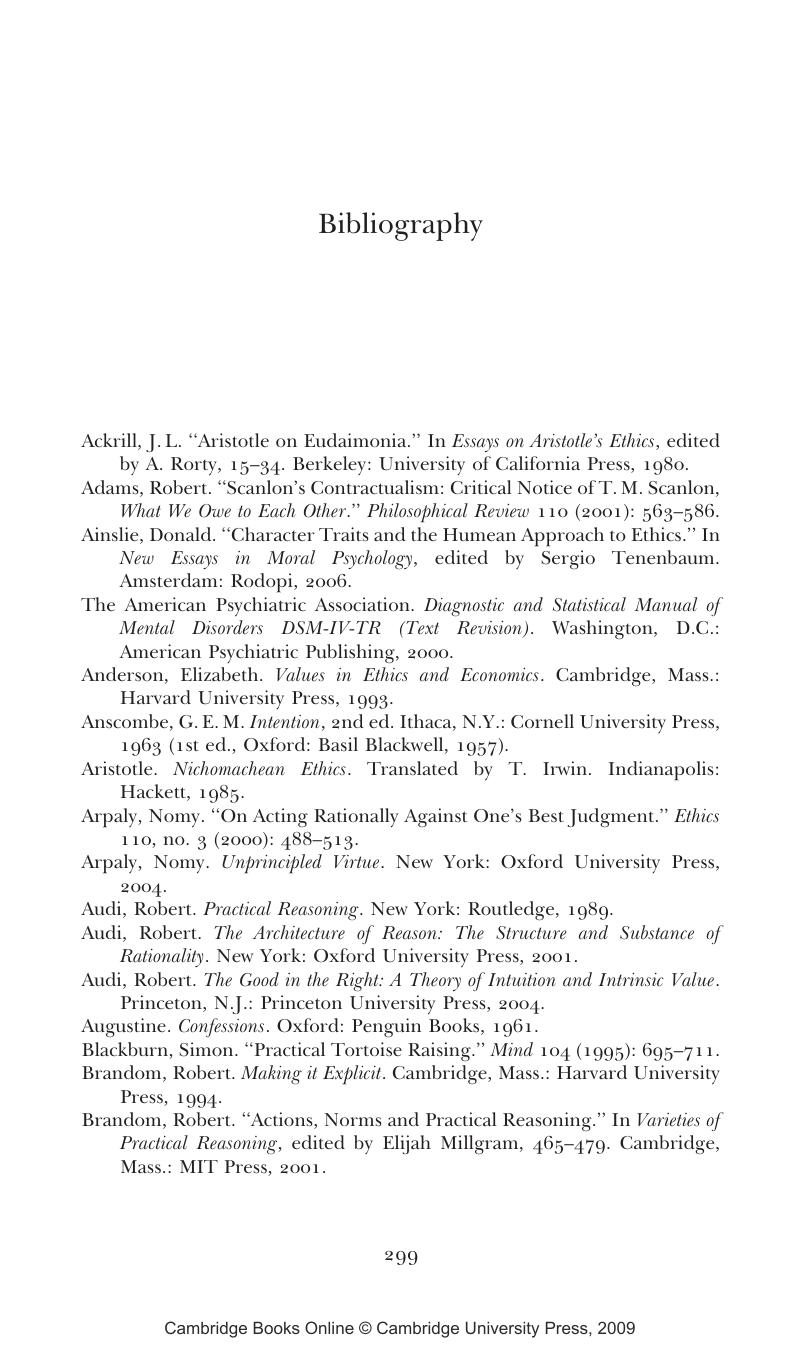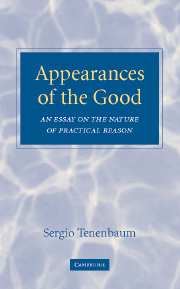Book contents
- Frontmatter
- Contents
- Acknowledgments
- Appearances of the Good
- Introduction
- 1 The Basic Framework: Desires as Appearances
- 2 The Basic Framework: From Desire to Value and Action
- 3 The Subjective Nature of Practical Reason
- 4 The Objective Nature of Practical Reason
- 5 Deontological Goods
- 6 Motivation without Evaluation? Unintelligible Ends, Animal Behavior, and Diabolical Wills
- 7 Evaluation and Motivation Part Company? The Problem of Akrasia
- 8 Evaluation without Motivation? The Problem of Accidie
- Bibliography
- Index
- References
Bibliography
Published online by Cambridge University Press: 25 August 2009
- Frontmatter
- Contents
- Acknowledgments
- Appearances of the Good
- Introduction
- 1 The Basic Framework: Desires as Appearances
- 2 The Basic Framework: From Desire to Value and Action
- 3 The Subjective Nature of Practical Reason
- 4 The Objective Nature of Practical Reason
- 5 Deontological Goods
- 6 Motivation without Evaluation? Unintelligible Ends, Animal Behavior, and Diabolical Wills
- 7 Evaluation and Motivation Part Company? The Problem of Akrasia
- 8 Evaluation without Motivation? The Problem of Accidie
- Bibliography
- Index
- References
Summary

- Type
- Chapter
- Information
- Appearances of the GoodAn Essay on the Nature of Practical Reason, pp. 299 - 308Publisher: Cambridge University PressPrint publication year: 2007



